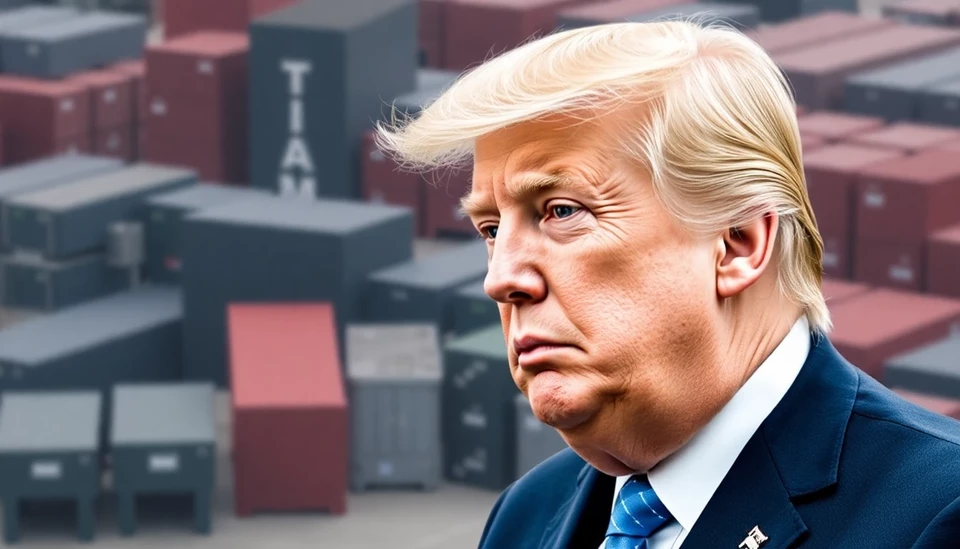
In a significant shift in U.S. trade policy, former President Donald Trump has initiated a new round of tariffs that could reshape global economic dynamics. The announcement, which caught international markets by surprise, is expected to trigger escalating tensions between the U.S. and its trading partners, diminishing stability in the already fragile post-pandemic economic recovery.
This new tariff regime comes as Trump continues to exert influence over American politics and economic strategy, despite his departure from office. Analysts suggest that the proposed tariffs, aimed at a variety of imports, are not only a tactical maneuver in trade negotiations but also a continuation of his administration's broader agenda to reposition the U.S. in the global economic order.
The immediate reaction from financial markets has been one of volatility. Stocks dropped in response to the news, as investors reassessed risk exposure in an environment marked by uncertainty. The implications of these tariffs stretch far beyond American borders, affecting supply chains and trade flows worldwide. Economists fear that unintended consequences could arise, leading to an economic climate ripe with increased commodity prices and elevated inflation expectations.
Among the sectors most likely to be impacted are consumer goods and technology, with both industries heavily reliant on imported materials. U.S. businesses may find themselves grappling with higher operational costs, which could ultimately be passed on to consumers. The ripple effect of this could dampen consumer spending, a key component of the U.S. economy, and stifle growth at a time when recovery efforts are still underway.
Furthermore, international reactions to this tariff policy are expected to be swift. Nations affected by the new tariffs are considering their responses, with some already signaling a potential trade retaliation. Analysts are warning about the risk of a trade war, echoing concerns from previous tariff applications during Trump's initial presidency. The prospect of retaliation could lead to a tit-for-tat scenario that governs global trade relationships for the foreseeable future.
This development highlights the intricate web of dependencies and alliances within global trade. Countries with established trade agreements with the U.S. may need to recalibrate their policies in light of the new tariffs, while others may seek opportunities to fill gaps created by shifting trade routes. Emerging markets, particularly, are on alert as they may face the fallout of weakened demand from U.S. consumers amidst higher import costs.
As Trump's tariff policies take effect, policymakers around the world are being urged to prepare for the potential fallout. The international community is closely watching how this situation unfolds as it may have lasting implications for global trade and economic stability. In the meantime, businesses and consumers alike are left to navigate a new era of risk characterized by evolving trade policies and heightened uncertainty.
The ramifications of this tariff rollout are profound, highlighting the delicate balance of international economic relationships and the significant influence of U.S. trade policy. How nations respond could either mitigate or exacerbate these tensions, thereby influencing the trajectory of the global economy in the coming months and years.
As the world watches, it remains to be seen whether cooperation or confrontation will define the future of global trade. One thing is clear: the landscape is shifting, and stakeholders at every level must adapt to survive.
#Trump #Tariffs #GlobalEconomy #TradeWar #EconomicPolicy #MarketVolatility #ConsumerGoods #InternationalTrade #SupplyChain #EconomicRecovery #CommodityPrices
Author: Laura Mitchell




